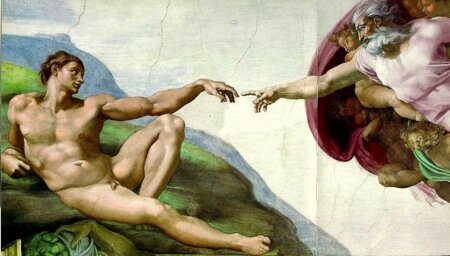
There has been much online debate surrounding the case of recently defenestrated science pedagogue Michael Reiss, about whom I wrote a few days ago. A few contributors to that discussion (e.g., Bad Science forum) continue to misrepresent what Professor Reiss said at the Festival of Science meeting in Liverpool, but from what I can see most feel that his position is in at least some ways defensible. That said, maybe the stuff about worldviews could have been better worded, and edited by someone with a PR’s eye and understanding of the media.
In my previous piece I quoted from Reiss’s talk to the British Association, and here I shall quote some more. The full presentation brief can be found on the British Association website.
“When I was taught physics at school, and taught it extremely well in my view, what I remember finding so exciting was that we could discuss almost anything providing we were prepared to defend our thinking in a way that admitted objective evidence and logical argument.
“In an interesting exception that proves the rule, I recall one of our advanced level chemistry teachers scoffing at a fellow student who sat with a spoon in front of her while Uri Geller maintained he could bend viewers’ spoons. I was all for this approach. After all, I reasoned, surely the first thing was to establish if the spoon bent (it didn’t for her) and if it did, then start working out how.”
To me this displays creative and very scientific thinking on Reiss’s part. As for creationism, Reiss’s call for “genuine discussion” does not mean giving the subject equal time with evolution. What he is saying is that, in certain classes, depending on how able and comfortable the teacher feels about handling the topic, it may be appropriate to discuss it in order to advance students’ understanding of science:
“If questions or issues about creationism and intelligent design arise during science lessons they can be used to illustrate a number of aspects of how science works such as ‘how interpretation of data, using creative thought, provides evidence to test ideas and develop theories’; ‘that there are some questions that science cannot currently answer, and some that science cannot address’; ‘how uncertainties in scientific knowledge and scientific ideas change over time and about the role of the scientific community in validating these changes’.”
Reiss acknowledges that this won’t be easy. Some students will become argumentative; others will keep quiet while disagreeing with the teacher, and maybe only discuss the issue with parents at home, who will then reinforce the creationist prejudice.
“Creationism can profitably be seen not as a simple misconception that careful science teaching can correct, as careful science teaching might hope to persuade a student that an object continues at uniform velocity unless acted on by a net force, or that most of the mass of a plant comes from air. Rather, a student who believes in creationism can be seen as inhabiting a non-scientific worldview, that is a very different way of seeing the world. One very rarely changes one’s worldview as a result of a 50 minute lesson, however well taught.”
When I read these words I picture a man who understands his limits and those of others who would change the world. Reiss is an educational empiricist, and thoroughly scientific with it.
Since my original comment I have written to Reiss to offer moral support, and suggest that he and Richard Dawkins might put their differences to one side, and work together publicly on advancing the teaching of evolution in schools. From Reiss’s reply it would seem as if those differences are not as great as some might expect.
The moral of this tale is a common one: that one should be wary of reacting in a knee-jerk fashion to media spin and straw men erected by those with a political agenda to advance.
Thank G-d for Michael Reiss (only joking!).